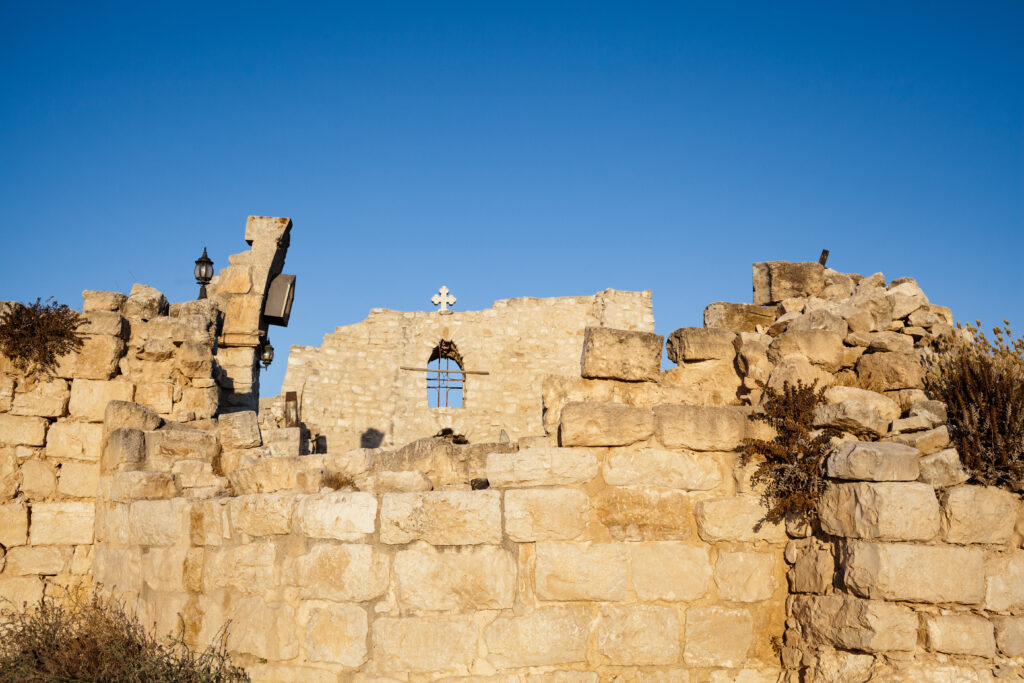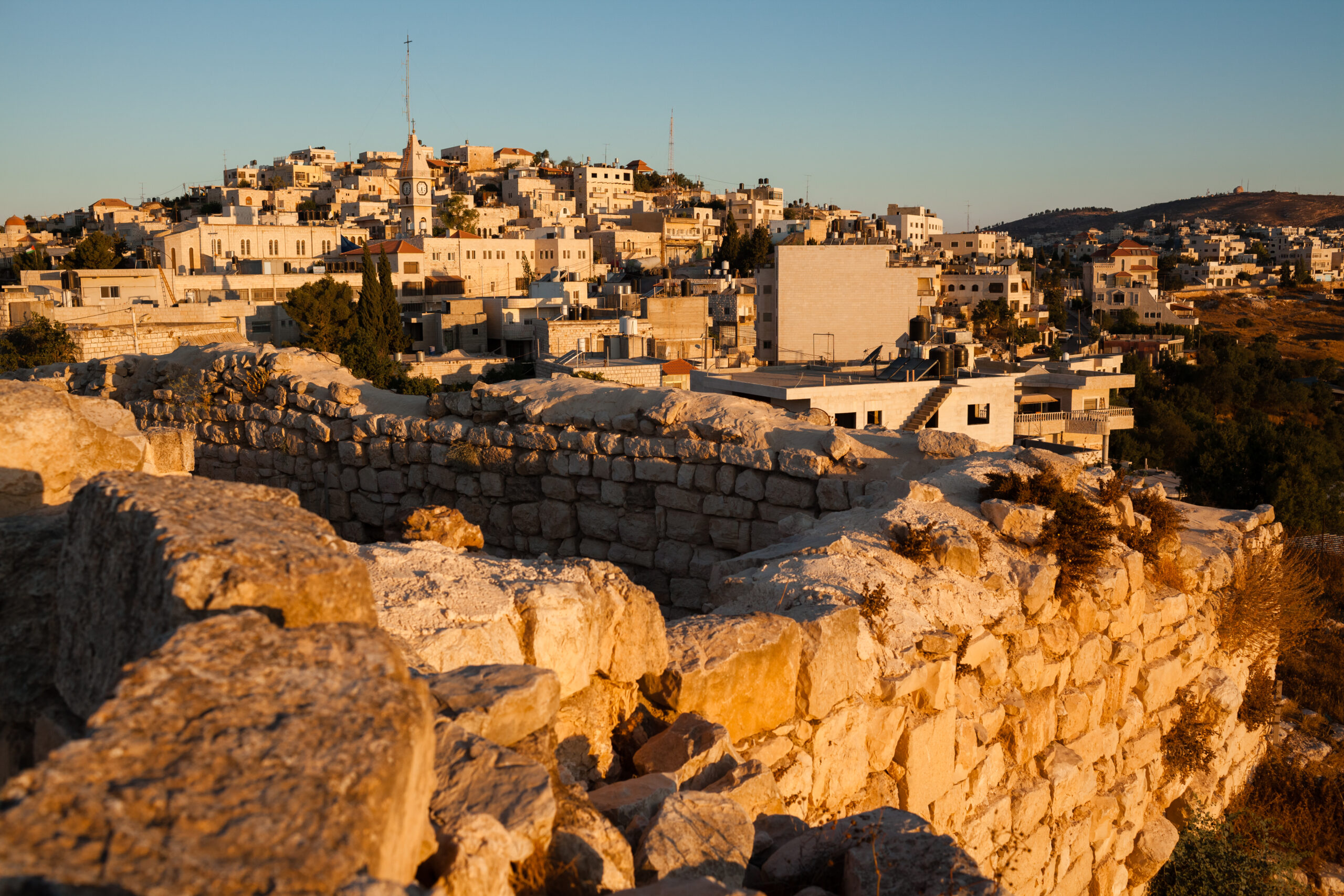Senior Christian clerics, including Greek Orthodox Patriarch Theophilos III and Latin Patriarch Pierbattista Pizzaballa, visited the Christian town of Taybeh on Monday to express solidarity after what they described as a string of “radical settler” attacks on Christian residents and heritage sites. The visit included a prayer ceremony and press conference near the site of a recent fire, which they claim was deliberately set by Jews. Yet multiple eyewitnesses and video evidence strongly contradict this narrative.
In their official statement, the church leaders accused Israeli authorities of enabling violence by Jewish residents. They called for an “immediate and transparent” investigation into why Israeli police did not respond to emergency calls.
“These actions are a direct and intentional threat to our local community first and foremost, but also to the historic and religious heritage of our ancestors and holy sites,” their statement read. “Even in times of war, sacred places must be protected.”
“The attacks by the hands of settlers against our community, which is living in peace, must stop, both here in Taybeh and elsewhere throughout the West Bank. This is clearly part of the systematic attacks against Christians that we see unfolding throughout the region.”
King Abdullah II of Jordan also condemned the alleged arson attack in the town as “a blatant violation of the sanctity of the dead, Christian holy sites, and the Christian presence in the Holy Land.”
However, new evidence reveals that Arabs, not Jews, carried out the arson in question. According to Israel365 News sources, the fire was deliberately set by Arabs in an attempt to damage grazing land belonging to a nearby Jewish farm. Far from being the perpetrators, the farm owner and his team worked to extinguish the blaze and filed three police reports about the arson. Tragically, the fire spread unintentionally and reached a Christian cemetery — a result exploited by activists and some clerics to blame Jewish residents for the damage.

The Israeli police have not commented, but the Binyamin regional council spokesperson confirmed the reports came from reliable sources. They also confirmed that videos show Jewish residents attempting to extinguish the blaze. It has also been reported that the farm owner filed three complaints with the police regarding the arson attacks targeting his fields.
This misrepresentation is not an isolated incident. Just days earlier, Israeli sources uncovered that what had been reported as a violent clash between Jewish residents and Palestinians in the Binyamin region was, in fact, a carefully planned Arab terror ambush. Arabs armed with rocks, slings, and firebombs staged a confrontation designed to provoke Jewish self-defense, which was then falsely presented in international media as “settler violence.” A Jewish teenager was seriously injured, and a Jewish shepherd was murdered in the same area days earlier. A senior security official confirmed that the event was “a premeditated, organized attack with the clear aim of drawing in Israeli security forces and provoking a wider conflict.”
There were several reports on an incident on Friday near the village of Ateret and the town of Sinjil.
— Israel Foreign Ministry (@IsraelMFA) July 12, 2025
This is what they won’t show you on the news – how the incident started: Palestinians attacking Jews. pic.twitter.com/cIhWAGDcFw
This libel was documented in a comprehensive new report from the Regavim Movement, titled “False Flags and Real Agendas,” which investigates the widely circulated narrative of “settler violence” in Judea and Samaria. It exposes how this concept is often based on inflated or distorted data—primarily sourced from Palestinian testimonies and the UN OCHA database—with minimal independent verification. Over 98 % of flagged incidents stemmed from clashes involving the IDF or were legitimate security operations rather than Jewish civilian aggression. After filtering out non‑violent events—such as traffic mishaps, archaeological visits, legal infrastructure work, or self‑defense actions—the number of credible settler violence cases dwindles to a few hundred over several years—far below the claimed scale.
The report asserts that the narrative of “settler violence” functions as a political weapon and a modern‑day blood libel, designed not only to defame Israeli settlers but also to undermine the legitimacy of the State of Israel and its military. It points to coordination between left‑wing NGOs, international bodies, and even Palestinian authorities, all aiming to distort incidents for political ends, including securing global pressure, sanctions, and delegitimization of Israel. The report calls for transparent, accurate data and a proactive public diplomacy campaign to combat these false narratives. As it concludes, the concept of widespread “settler violence” is overwhelmingly a fabricated lie, repackaged as a propaganda tool in the broader struggle against Israel.
⚠️BREAKING: Palestinian terrorists set fire near Jewish farms, approximately 65 kilometers from the Jerusalem forest fires.
— Vivid.🇮🇱 (@VividProwess) April 30, 2025
pic.twitter.com/tl7RJkSzIx
Despite this context, Patriarch Pizzaballa and Theophilos repeated unproven claims of systemic violence by Jews in Taybeh. They lamented the emigration of Christians from the region, which they blamed on fear and harassment. Pizzaballa told reporters that he doubted whether Israeli law enforcement would respond meaningfully to their concerns. The patriarchs’ statement went as far as claiming the Christian presence in Samaria is facing “systematic attacks,” and called on international Christian communities to intervene.
In light of the overwhelming documentation pointing to Arab culpability in the Taybeh fire and to a broader pattern of staged provocation, critics argue that the accusations made by church leaders risk feeding an already distorted narrative about Jewish residents of Samaria. The trend of automatically blaming “settlers” — often without evidence — is being increasingly exposed as a politically motivated campaign to delegitimize Israel’s presence in its ancestral heartland.
As one settler source noted: “This is not about spontaneous clashes or vigilante violence. This is about premeditated terror and propaganda designed to trigger global outrage — and too many are falling for it.”
In a region where narratives often matter more than facts, the story of Taybeh is a reminder that truth must remain the cornerstone of justice, especially when entire communities are falsely vilified based on coordinated disinformation.




